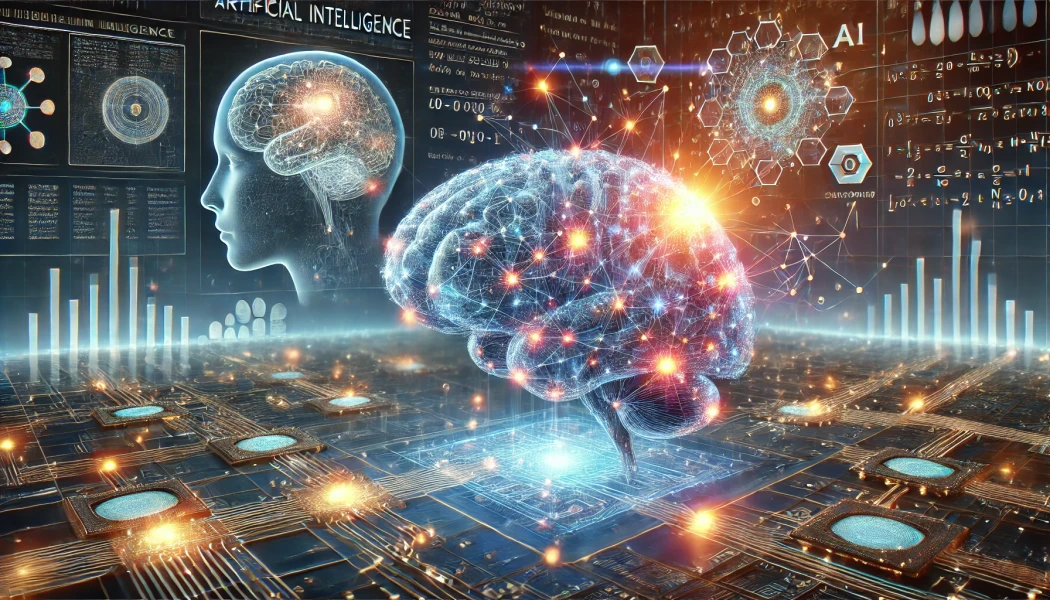What is Artificial Intelligence: a look from experience
What is Artificial Intelligence: a look from experience
Hey! I'm Rubén Águila, and today I'm going to tell you about something I've been watching from the inside for years: artificial intelligence or AI, as we now know it. If you've ever heard of robots that make decisions or systems that learn on their own, that's AI. But of course, let me explain it to you in a simple way, I don't want to bother you with technicalities that even I didn't understand when I started in this world.
What the heck is Artificial Intelligence?
Let's get down to business. The artificial intelligence is that technology that tries to mimic human thinking. So, instead of giving the computer a list of things to do as if it were a butler, the AI learns based on data. And there's the kicker: the AI doesn't follow orders, but faces real problems and makes decisions based on the information it has been gathering.
Think of a baby. When we are born, we know nothing about anything. Over time, we start to learn: how to walk, talk, or even tell a dog from a cat. Well, it's the same with AI: you give it data, and little by little, it learns. Automatic learning, they call it.
The types of AI: weak or strong?
Now, not all AIs are the same. There are weak AI and strong AI. I'll explain the difference:
weak AI: It's the one we have on a daily basis. The one that uses algorithms to perform specific tasks, such as recommending the next series on Netflix or helping you find the best route with Google Maps. It does its job well, but it is not capable of going beyond that scope.
strong>strong AI: Here we are already talking about a more advanced level. It would be an AI that can reason, plan or even be self-aware. You know, some scientists think this may be the future, but we are still light years away from seeing something like that.
How does Artificial Intelligence work?
AI is based on a thing called machine learning, or machine learning. You give it data (lots of data), and it learns patterns, improves its results and refines them over time. Sometimes it even uses neural networks, which are systems that mimic the human brain (don't worry, they won't become Skynet).
Imagine you want to teach an AI to distinguish between dogs and cats. You give it thousands of images, and it starts analyzing the patterns: the size of the ears, the shape of the body, the color of the fur.... At first, she gets a lot wrong, but the more she practices, the more she gets it right. And that's what we call supervised learning.

However, some AIs don't need you to tell them anything. They use what is known as deep learning, or deep learning. They analyze images, sounds, texts, you name it! And they start drawing conclusions without your help.
Applications of AI: How is it changing our lives?
Here comes the good stuff. I'm sure you've heard of Siri, Alexa, or those systems that convert your voice into text. Well yes, that's AI too. But there's more, much more.
1. Search engines
Search engines like Google don't just work based on keywords. They use AI and natural language processing (NLP) to understand what you're looking for and give you more relevant results.
2. Cybersecurity
Did you know that AI can identify potential cyberattacks before they happen? It analyzes user behavior and detects any anomalies that could be a danger.
3. Voice assistants
This is a classic. Siri, Google Assistant or Alexa are examples of how AI has revolutionized our interaction with technology.
4. Health
Here AI is doing amazing things. From faster diagnoses to chatbots that help patients. In the future, we could see AI that predicts diseases before symptoms appear.
5. Generative AI
This is the latest of the latest. Systems like GPT-3 or DALL-E (sure they sound familiar) can generate text or images just by giving you a small hint. And they do it in a way that seems almost magical!.
AI in our daily lives
Since the first chatbots (remember A.L.I.C.C.E.?) to complex systems like DeepMind from Google that can win in games as difficult as GO, AI has advanced by leaps and bounds.
And, mind you, it doesn't stop there. The Internet of Things (IoT) also uses AI to connect our devices. From smart thermostats to autonomous cars, everything is interconnected!
A future dominated by AI?
Some experts say that strong AI could one day become smarter than humans. Imagine that. Self-aware machines making decisions for themselves. Don't panic, this is still pure science fiction. But the speed at which we are advancing is mind-boggling.
In short, artificial intelligence is already here. And it is helping us more and more every day, from small tasks to life-and-death decisions. Much remains to be seen, but one thing is clear: the future is in the hands of AI, and best of all, you are already part of it.
Conclusion
So there you have it, from my personal experience. Artificial intelligence is not a thing of the future, but of the present. It's in your pocket, in your home, in the hospital, and in places you wouldn't even imagine. The key is to harness its potential to improve our lives, without losing sight of the risks.
Faculties
Trainings
The faculties embrace diverse academic disciplines and fields of study, opening doors to new perspectives and exploring different spheres of wisdom in a constantly evolving world.





